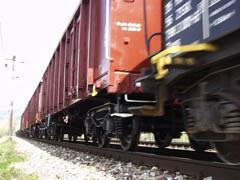
EUROPE: Senior executives from the railway supply industry called for urgent action to address the problems of rail vehicle acceptance in a heated round-table debate at the UNIFE General Assembly in København on June 14.
Pointing out that it took an average of 600 days to get new vehicles approved, the head of Siemens Rolling Stock Dr Hans-Joerg Grundmann said equipment valued at €1·4bn was currently awaiting acceptance in Germany alone, incurring capital servicing costs of around €100m a year.
As well as the commercial impact on the suppliers, these unnecessary costs were making rail less competitive against other modes.
He suggested that in some markets applications were being delayed for weeks or months while 'professors argue with dipl-engineers' over their interpretation of European standards and national rules.
European Railway Agency Director Marcel Verslype said a complete set of TSIs should be ready by the end of 2013, which he hoped would provide clearer guidelines for manufacturers.
Meanwhile, steps are being taken to consolidate the different sets of national rules from the 25 EU member states with railways plus Norway and Croatia; Switzerland is expected to join next year. More than 12 000 individual rules are now published on the ERA website. However, Verslype acknowledged that some directives were being interpreted differently by authorities in different member states.
The European Commission established a task force last year to review the problems of vehicle acceptance, and this is expected to publish its findings shortly. UNIFE General Manager Eric Fontanel suggested that the structure introduced under European directives over the past decade had created 'a monster' to formalise what had been handled as internal processes within a single incumbent railway, which would only be solved by moving to a common European process.
Bombardier Transportation President Andre Navarri cited as an example the requirements for inspecting and approving axles and wheelsets in different countries, which was just one of many issues he remained concerned about.
But ERA's Richard Lockett pointed out that the Commission had received no formal complaints from UNIFE or its members which would enable it to request an independent technical opinion from the agency.
Earlier this year UNIFE and CER issued a proposal that ERA should become the single European authority for safety approval, by 2020 at the latest. The meeting hoped to see proposals to strengthen ERA's powers being brought forward as part of the fourth railway package.
However, industry insiders subsequently suggested that national safety authorities would remain cautious about cross-acceptance of vehicles authorised by another country or European body as long as they remained liable to prosecution in the event of any accident.

















